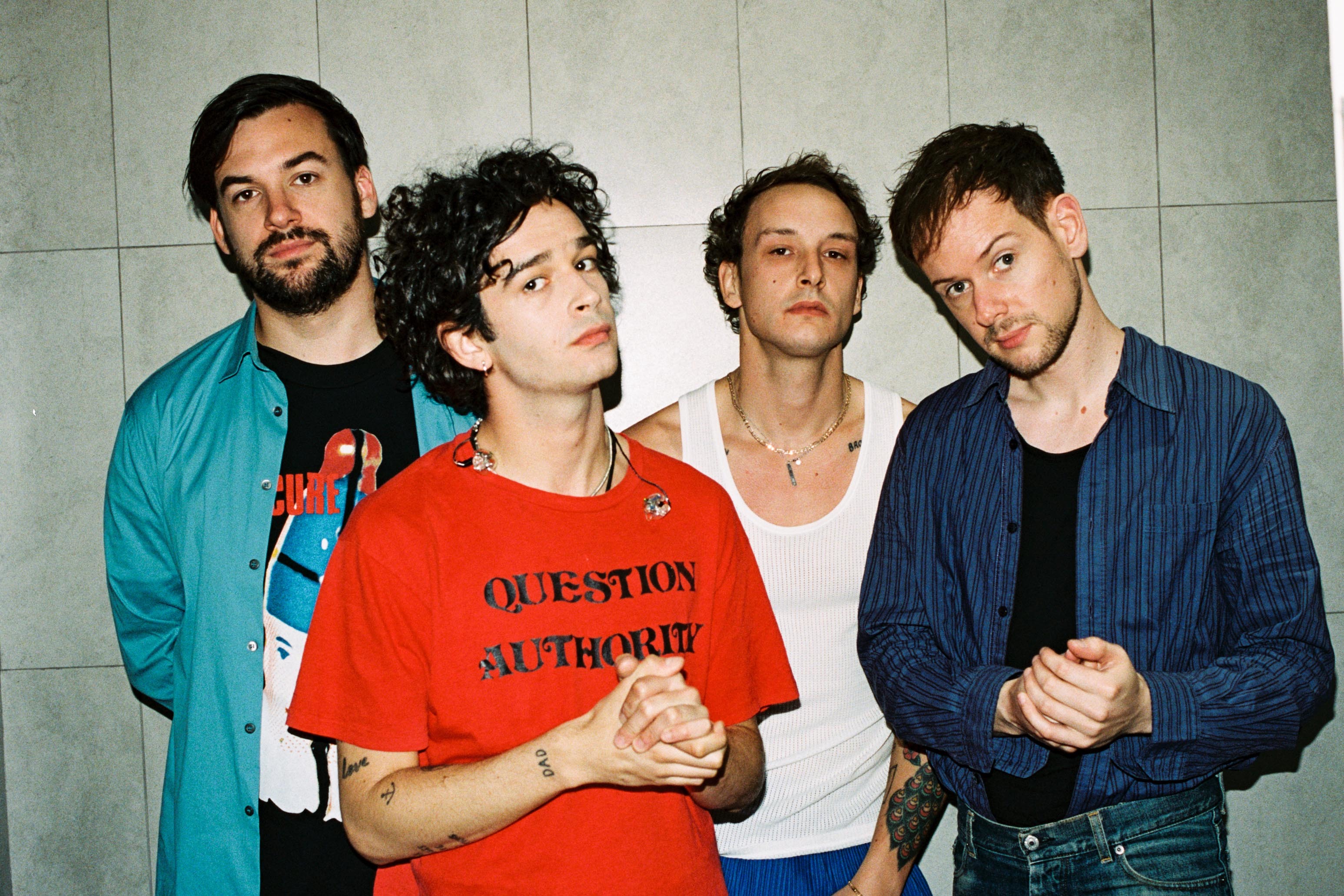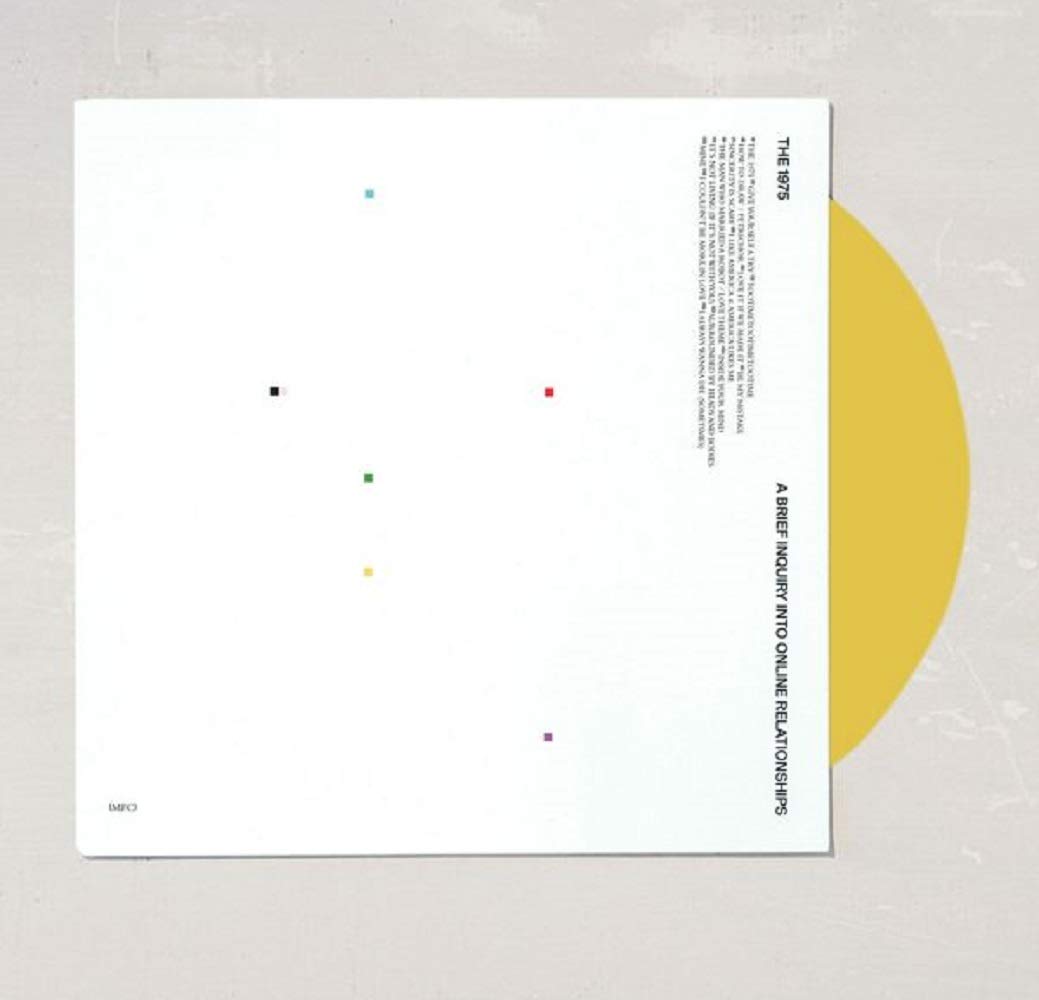History Lesson: The 1975
The 1975, a four-member band from Manchester, England, is comprised of Millennials yet has a predominantly Generation Z fan base. The lead singer, Matthew Healy, is joined by guitarist Adam Hann, bassist Ross MacDonald, and drummer George Daniel (Zoladz, “We Love It, They Made It: The 1975’s Perfect Statement”). The 1975 can be described as “a Brit-pop band fascinated by a sometimes-indifferent America, Trying To Say Something About Modern Life, occasionally tripping over their own grandeur” (Zoladz, “We Love It, They Made It”). Their sound is bright and emotive with bubblegum melodies, yet their much darker lyrics investigate taboo issues such as drug addiction and mental health.

Despite their Generation Z fan base, Healy is a self-described generational troubadour, or “a Millenial that Baby Boomers like” as he has defined it (Zoladz, “We Love It, They Made It”). Their younger followers, however, relate to the band’s emo genre, which they call “the new emo” (Doyle, “14 Things We Learned Hanging Out With the 1975”). In this “new emo,” The 1975 explores depression and relationships in an extreme format and over-the-top manner. This “tribalism,” as Daniel has coined it, allows fans to feel comforting ownership of the band due to their relatable lyrics. Although criticized for it, Healy has used this idea of ownership to his advantage. On Twitter, he uses his stardom to act as a voice of empowerment, knowing that fans’ possession of him will generate confidence in them (Doyle, “14 Things We Learned”). Twitter has also acted as a source of inspiration for The 1975, where they use exaggerated criticisms, accusations, and conversations as material for their albums. Unlike Joel, who wanted to escape the 1980s through his music, the exaggerated music of The 1975 makes “the Eighties bits … Eighties-er” and “more like a John Hughes film” (Doyle, “14 Things We Learned”). Each song refines the band’s experiences, allowing them to reclaim ownership of themselves and their music.

Each of The 1975’s records is self-produced, allowing them “to indulge in a stylistic eclecticism that an outside producer might try to curtail” (Zoladz, “We Love It, They Made It”). By self-producing their records, The 1975 can have a “try-anything” approach when it comes to music, or a maximalist style in which they are constantly expanding rather than contracting. In their 2018 album A Brief Inquiry into Online Relationships, this maximalism is exposed, for the album explores new genres with each song.

“Love It If We Made It” from A Brief Inquiry into Online Relationships is, like “We Didn’t Start the Fire,” a time capsule. The song hook of the song, however, is an open question of how long the human species will survive, demonstrating the quintessentially millennial anxieties. “Love It If We Made It” was written by Healy over a two year period, two years during which Donald Trump became president and ever-worsening news headlines about the future of the earth appeared daily. Originally, Healy planned for the lyrics to be derived entirely from news headlines, but to have the song’s severity understood by modern youth, he combined meme language (“And poison me, daddy”) with the immigration crisis (“A beach of drowning three-year-olds”), adding pop culture artists like Kanye West along the way (Zoladz, “We Love It, They Made It”).
By implementing language that is relatable to younger generations, The 1975 sparks a curiosity in Millennials and Generation Z about the past’s political actions. In “Love It If We Made It,” The 1975 introduces the theme of hope into a nihilistic, hopeless generation (Johnston, “The 1975: A Brief Inquiry Into Online Relationships”). The song challenges issues facing the American and British youth, which demonstrates the overwhelming anxiety of today’s generations combined with a desire to transform the political agenda. The 1975’s popularity is a result of Healy’s familiar anxiety. The band produces an anxious feeling that today’s youth resonate with, thus demonstrating the repercussions of older generations onto younger generations. Despite this familiarity, however, “The 1975 would have made more sense in the 1980s, when pop was colonized by the post-punk and art rock diaspora” (Lynskey 2018, 38). In this sense, “Love It If We Made It” is a scream-along with The 1975 as the voice of their generation, portraying the frustration of today’s youth toward the continued American political standard of complacency.